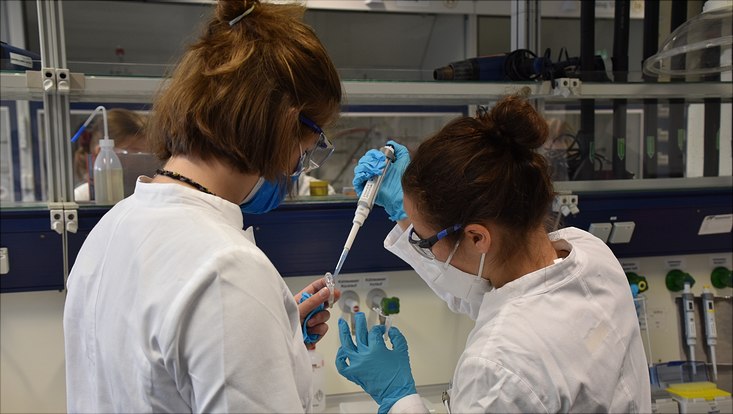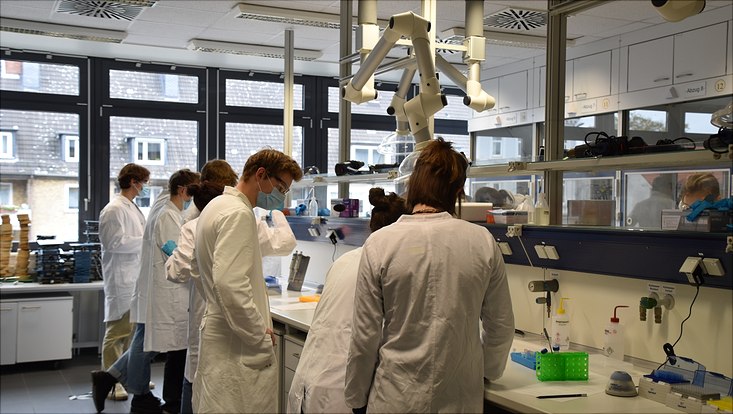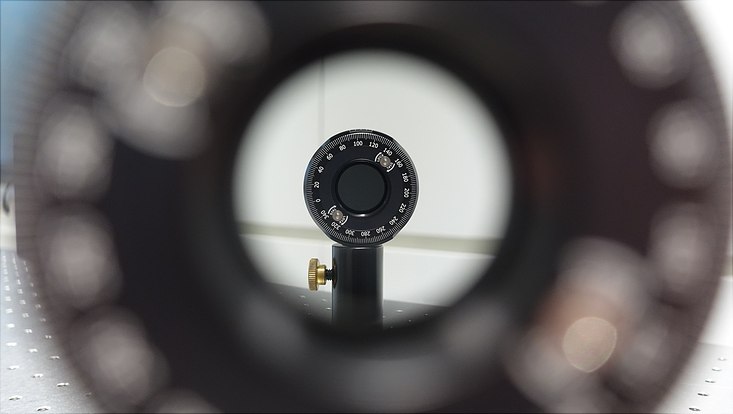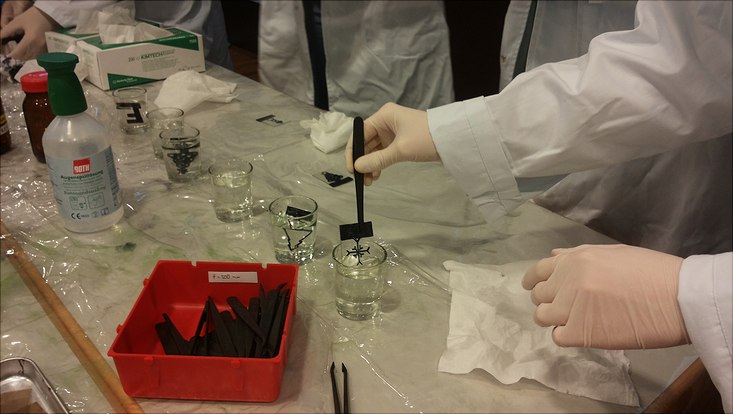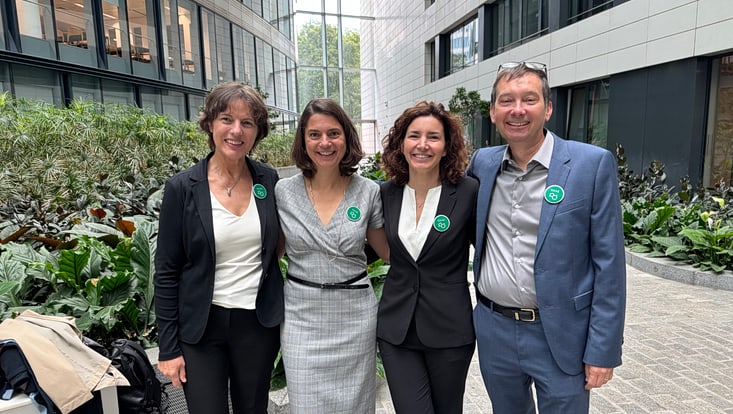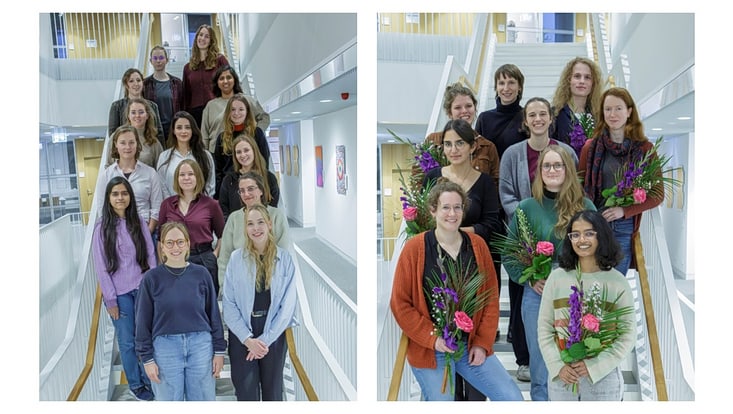Imaging of Matter
Federal government supports university offerings for children and young peopleUniversität Hamburg school labs receive €93,000
18 February 2022
Two school laboratories at Universität Hamburg have successfully applied for funding from the German Federal Ministry of Education and Research: The physics school lab "Light & Schools" will receive €50,000, the chemistry school lab "Molecules & Schools" will receive €43,000.
About 20 percent of children and teens are believed to need additional support because of the COVID 19 pandemic. For this reason, the federal government has launched the "Catching Up to Corona for Children and Youth" action program. It includes a catch-up program for pandemic-related learning gaps and a comprehensive package of measures to further support young people.
Aimed at students who have lost motivation
"With the funding, we can facilitate an afternoon program with many different experiments in one-to-four supervision," says Bastian Besner, who coordinates "Light & Schools" together with Dr. Monika Kobylinski and Dr. Jonas Siegl. The project "Physik zum Mitmachen" (PhyzMima, physics to join in), which was developed for this program, is specifically aimed at students from grade 8 onwards who have lost motivation to deal with physics topics during homeschooling or who could not participate in lessons and perform physics experiments due to a lack of technical equipment at home.
A crucial component of the project is the school lab's Science Escape Game. Here, students get insights into the research of the Cluster of Excellence "CUI: Advanced Imaging of Matter," which funds the school labs. Prof. Klaus Sengstock, who founded "Light & Schools" ten years ago, emphasizes the importance of specifically helping children and young people catch up now and showing them how fascinating laboratory work is.
Rediscovering the joy of STEM subjects
The "MINtensiv" offers from "Molecules & Schools", which are also funded, are aimed at students in grades 9 - 11 at district schools (Stadtteilschulen). In vacation courses or afternoons, they can conduct exciting experiments in the chemistry school laboratory for a year, for example on the production of ancient fragrances, food analysis or genetic fingerprinting, and at the same time get a taste of university life. "What is special about these age groups is that this is where the decision is made for the profile in the upper level," says coordinator Dr. Skadi Kull. "The MINtensiv program could thus have a positive effect on the decision of undecided students regarding their choice of a science profile." In any case, they could rediscover the joy of STEM subjects.
Funding for the school labs was offered as part of the action program "Catching up with Corona for children and young people" by Lernort Labor - Bundesverband der Schülerlabore e.V. (LeLa) together with the Julius-Maximilians-Universität Würzburg.

